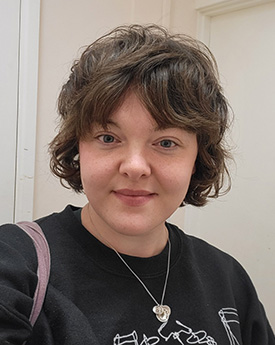Dr Michael Thompson FHEA
Lecturer in Experimental Condensed Matter PhysicsResearch Overview
I hold a Royal Academy of Engineering Research fellowship (“Graphene transistors for cryogenic electronics“) and my current research interests are in developing electronics that operate at cryogenic temperatures using 2D materials. Cryogenic electronics already enable many cutting-edge technologies: from medical sensors and materials characterisation to deep space communications and dark matter searches. As an enabling technology, cryogenics electronics are also essential for building scalable quantum computers. My work forms part of the “European Microkelvin Collaboration” (EMP) and I am Co-I on the “Quantum Enhanced Superfluid Technologies for Dark Matter and Cosmology” (QUEST-DMC) project, which aims to utilise quantum technologies to enable dark matter searches and study early universe evolution.
In general, I am interested in the use of new or unconventional materials that can enable new technologies or improved performance of existing technologies. I began my research career developing optoelectronic devices; lasers, light emitting diodes and photodetectors using narrow bandgap semiconductors and nanowires. Subsequently, I moved into low temperature physics to study quantum transport in 2D materials, developing ultra-sensitive magnetometers using graphene Josephson junctions and creating a new cryogenic platform with industrial collaborator, Oxford Instruments (OI). I also collaborate with the National Graphene Institute and the EU’s Graphene Flagship (H2020).
LANCQTFP: Quantum Enhanced Superfluid Technologies for Dark Matter and Cosmology
01/12/2020 → 31/03/2025
Research
Graphene Transistors for Cryogenic Electronics
01/10/2019 → 30/09/2024
Research
Josephson Parametric Amplifiers using CVD graphene junctions
01/01/1900 → …
Research
Quantum Engineering; the other Industrial Revolution
Public Lecture/ Debate/Seminar
Superconducting nanowire resonators with circular cross-section.
Oral presentation
Noise characterisation of Graphene junction SQUIDs
Invited talk
Noise characterisation of Graphene junction SQUIDs
Oral presentation
Applied Physics Letters (Journal)
Publication peer-review
Building low-temperature electronics using 2D materials.
Oral presentation
Computing’s cold future
Invited talk
Cross-correlation noise measurements of graphene SQUIDs
Invited talk
ACS Applied Materials and Interfaces (Journal)
Publication peer-review
Nano Letters (Journal)
Publication peer-review
The Journal of Physical Chemistry C (Journal)
Publication peer-review
Using 2D-materials for low-temperature electronics
Invited talk
Research Impact Award
Prize (including medals and awards)
Science and Technology Dean’s Award – Excellence in External Engagement and Impact in Science and Technology
Prize (including medals and awards)
Low Temperature Physics, Quantum Nanotechnology
Low Temperature Physics, Quantum Nanotechnology
Low Temperature Physics, Quantum Nanotechnology
- Low Temperature Physics
- Quantum Nanotechnology
- Quantum Technology Centre




